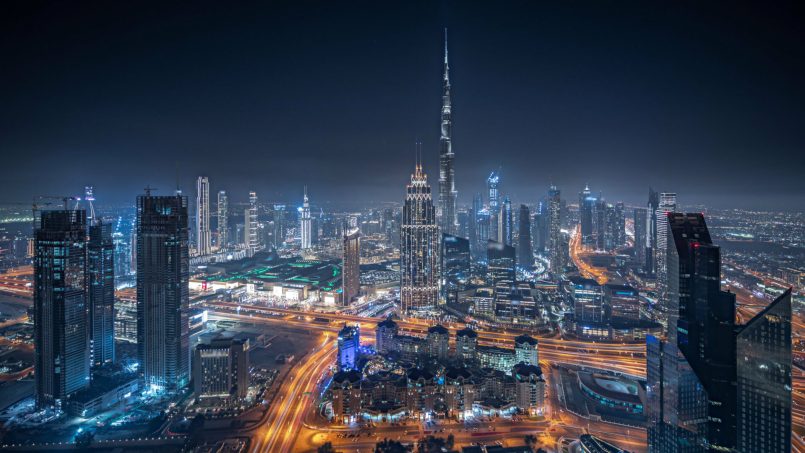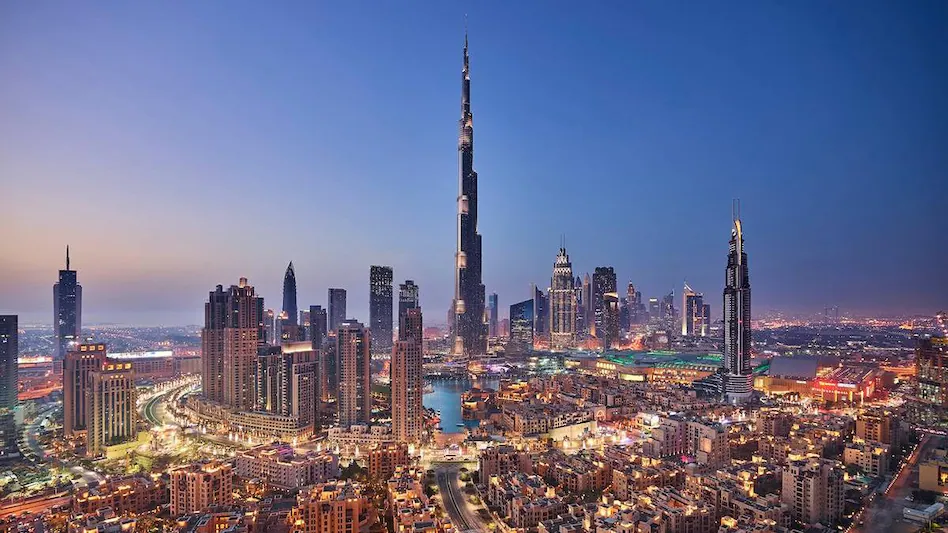Dubai’s Housing Market on Fire
Dubai continues to shine in the global real estate arena, securing its position as the world’s third-best performing location for prime real estate in 2024, with a remarkable 16.9% price increase according to the Knight Frank Cities Index. This surge in demand is primarily fueled by foreign buyers, with nearly half of them hailing from India. While high-net-worth individuals (HNIs) have historically led the way, there is a noticeable shift as buyers from Tier 2 and Tier 3 Indian cities are now making their mark in the Dubai property market.

Why Are More Indians Buying Properties in Dubai?
Skyrocketing Prices in Indian Metro Cities: Property prices in Delhi and Mumbai have skyrocketed beyond what many can afford. Most newly launched properties in these cities are priced over ₹5 crore, making Dubai’s real estate an appealing alternative.
Luxury at Competitive Prices: Even though Dubai’s real estate market is known for its high values, the average property prices remain competitive when compared to Indian metros, drawing in middle and upper-middle-class investors.
Lucrative Rental Yields: Dubai boasts higher rental returns (5%-8%) compared to Indian cities (2%-3%), positioning it as a prime location for real estate investments.
Tax Benefits:
With Dubai’s zero property tax policy, it becomes an attractive destination for investors looking to diversify their portfolios.
Ease of Investment & Residency Benefits:
Investors enjoy advantages such as golden visas, freehold ownership, and investor-friendly policies, which are encouraging more Indian buyers to explore the market.

ED’s Crackdown on Suspicious Indian Investments
The Enforcement Directorate (ED), India’s leading anti-money laundering agency, has ramped up its scrutiny of questionable property purchases by Indians in Dubai. Utilizing data from the Income Tax Department and the Reserve Bank of India (RBI), the ED is investigating cases involving undeclared assets, potential money laundering, and violations of the Foreign Exchange Management Act (FEMA).
* Slowdown in Indian Real Estate Transactions: The ongoing ED investigation is already affecting Dubai’s property market, leading to a slight decrease in transactions during Q4 2024.
* Tax Authorities Issue Notices: In October 2024, the Foreign Asset Investigation Unit (FAIU) of India’s Income Tax Department sent out nearly 100 notices to affluent Indians who have not declared their properties in Dubai.
Decline in Sales Value:
* Total sales value for Q4 2024: AED 65.23 billion (₹1.55 lakh crore), reflecting a 44% year-on-year growth.
* However, there was a 4% quarter-on-quarter decline in sales value, linked to the scrutiny from the ED.
* Average sales value per home: AED 1.97 million (₹4.67 crore), indicating a 7% year-on-year decrease.
UAE-India Data Sharing Agreement:
Authorities in Dubai have provided ownership data to Indian agencies, particularly targeting individuals who spend less than 90 days in the UAE, which may indicate undisclosed offshore investments.
Major Policy Shifts in Dubai’s Real Estate Market
The government of Dubai is implementing new policies to manage and sustain its real estate growth while promoting transparency and attracting foreign investments.
1. Smart Rental Index:
* Introduced in January 2024, this rating system evaluates buildings on a scale of 1 to 5 stars based on over 60 criteria, including location, security, amenities, and sustainability.
* The goal is to improve transparency and empower both landlords and tenants.
2. Freehold Status Expansion:
* As of January 2024, Dubai has permitted all nationalities to convert leasehold properties to freehold along Sheikh Zayed Road and in Al Jaddaf.
* A total of 457 plots are eligible for this conversion:
* 128 on Sheikh Zayed Road (from Trade Centre Roundabout to Dubai Canal)
3. Central Bank Directive on Property Fees:
* Starting February 2024, UAE banks will no longer be able to finance registration fees and broker fees for the Dubai Land Department (DLD).
* This change will lead to higher upfront costs for buyers, which may result in a decrease in mortgage volumes.

Future Trends: Will Dubai’s Property Market Remain Resilient?
Despite some short-term disruptions from ED investigations and regulatory changes, Dubai’s real estate market is anticipated to keep growing due to:
* Government-backed incentives such as the Golden Visa, residency benefits, and a tax-free environment
* Increasing foreign investment from countries like China, Russia, Europe, and the Middle East
* Major infrastructure projects like Etihad Rail, which will improve connectivity between emirates
* New mega developments and the redevelopment of older properties, including the transformation of Sheikh Zayed Road
Conclusion What’s Next for Indian Investors in Dubai?
While Dubai continues to be an appealing investment destination, Indian buyers need to ensure they comply with all legal requirements and fully disclose their assets to avoid any regulatory issues. With greater transparency, effective regulations, and robust economic growth, Dubai’s real estate sector is set to remain a global leader, attracting investors from around the globe.
Author
-
 Palak: Author
Palak: AuthorI am an experienced Blog writer and SEO expert, I have successfully delivered over 200+ well-researched, engaging, and SEO-optimized articles. My expertise lies in creating content that not only reson...
View all posts





